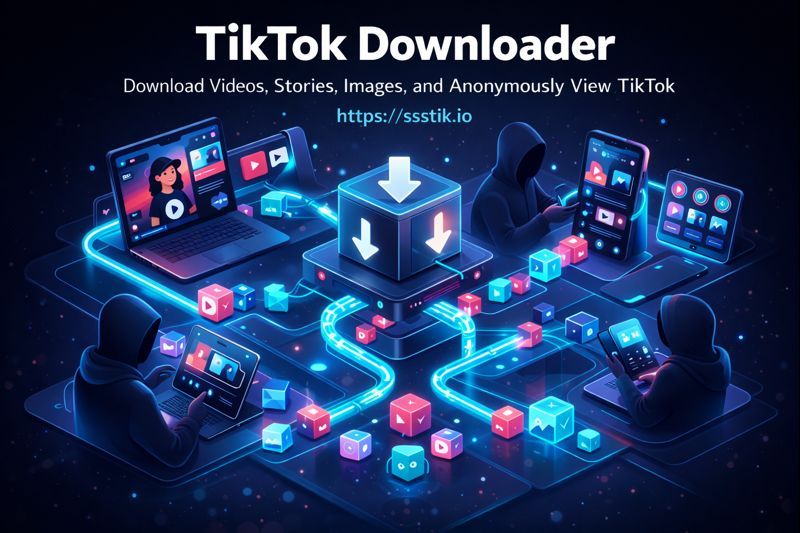Introduction to Algorithmic Trading
Algorithmic trading, or algo trading, involves using computer algorithms to execute trades in financial markets. These algorithms follow predefined criteria and can operate at speeds and frequencies far beyond human capabilities. Initially used to automate simple tasks, algorithmic trading has evolved to incorporate sophisticated strategies that leverage vast amounts of market data. It has become integral to modern financial markets, enhancing efficiency and liquidity by executing high-volume trades rapidly and with precision. Visit https://nerdynator.org to explore more about algorithmic trading and improve your decision-making skills.
The Rise of AI in Algorithmic Trading
Artificial Intelligence (AI) and machine learning (ML) have revolutionized algorithmic trading by enabling more sophisticated data analysis and decision-making processes. AI, with its ability to process large datasets and identify patterns, has transformed traditional trading strategies. Historical applications of AI in finance include predictive analytics for stock prices and portfolio management. Today, AI-driven trading systems use advanced techniques to adapt to changing market conditions, making trading more dynamic and responsive.
Key AI Technologies Transforming Trading
- Machine Learning Models: Machine learning, particularly supervised and unsupervised learning, plays a pivotal role in trading. Supervised learning uses historical data to train models that predict future price movements or trading signals. Unsupervised learning identifies hidden patterns in market data without predefined labels, which can reveal novel trading opportunities.
- Natural Language Processing (NLP): NLP enables algorithms to analyze and interpret textual data from news articles, social media, and financial reports. This analysis helps gauge market sentiment and predict price movements based on public perception and news impact.
- Deep Learning: Deep learning, a subset of machine learning involving neural networks, excels in recognizing complex patterns in large datasets. In trading, deep learning models can forecast prices, detect anomalies, and optimize trading strategies by analyzing vast amounts of market data and historical prices.
- Reinforcement Learning: Reinforcement learning involves training algorithms through trial and error to optimize trading strategies. By receiving feedback from their actions, these algorithms learn to make decisions that maximize trading profits or minimize losses over time.
Algorithmic Trading Strategies Enhanced by AI
- High-Frequency Trading (HFT): HFT strategies rely on executing a large number of trades within milliseconds. AI enhances HFT by optimizing trade execution algorithms, reducing latency, and improving decision-making speed, which can lead to increased profitability and reduced trading costs.
- Arbitrage Opportunities: AI algorithms can identify and exploit price discrepancies between different markets or financial instruments. By analyzing market data in real time, AI can detect arbitrage opportunities that human traders might miss, facilitating risk-free profit generation.
- Market Making: AI algorithms assist in market making by providing liquidity to the market. These algorithms continuously quote buy and sell prices, adjusting them based on market conditions to ensure liquidity and competitive pricing.
- Trend Following and Mean Reversion: AI enhances trend-following strategies by analyzing historical price movements and identifying patterns that signal sustained trends. Mean-reversion strategies, which assume that prices will revert to their mean over time, are also optimized by AI through advanced statistical and machine-learning techniques.
Benefits of AI in Algorithmic Trading
- Increased Efficiency and Speed: AI algorithms can process and analyze market data at unprecedented speeds, leading to faster trade execution and more efficient trading operations. This speed advantage allows traders to capitalize on market opportunities before they disappear.
- Improved Accuracy and Prediction: AI models enhance predictive accuracy by analyzing vast datasets and identifying subtle patterns that human analysts might overlook. This improved accuracy helps traders make more informed decisions and refine their trading strategies.
- Reduced Human Error: By automating trading decisions, AI minimizes the impact of human error, such as emotional biases and decision-making delays. This reduction in error enhances the consistency and reliability of trading operations.
- 24/7 Trading Capabilities: AI-powered trading systems can operate around the clock, taking advantage of global market opportunities without the limitations of human trading hours. This continuous trading capability increases market participation and liquidity.
Challenges and Risks of AI in Trading
- Model Overfitting and Generalization: AI models are susceptible to overfitting, where they perform well on historical data but fail to generalize to new market conditions. Overfitting can lead to poor performance in live trading environments.
- Data Privacy and Security: The reliance on large datasets raises concerns about data privacy and security. Protecting sensitive trading data from breaches and ensuring compliance with regulatory requirements are critical challenges for AI-driven trading systems.
- Regulatory and Ethical Issues: The use of AI in trading poses regulatory and ethical challenges, including the need for transparency and accountability in algorithmic decisions. Regulators are working to establish guidelines to ensure fair and ethical AI practices in financial markets.
- Market Volatility and Systemic Risks: AI algorithms can exacerbate market volatility and contribute to systemic risks if not properly managed. The potential for algorithmic trading systems to amplify market shocks and create feedback loops requires careful monitoring and risk management.
The Future of AI in Algorithmic Trading
- Emerging Technologies: The future of AI in trading includes advancements in quantum computing and blockchain technology. Quantum computing promises to enhance AI’s analytical capabilities, while blockchain can improve transparency and security in trading systems.
- Integration with Other Technologies: AI will increasingly integrate with other technologies, such as decentralized finance (DeFi) platforms and advanced analytics tools, to create more sophisticated trading strategies and improve market efficiency.
- Predictions for Market Evolution: Experts predict that AI will continue to evolve, driving innovations in trading strategies and market analysis. The increasing complexity of financial markets will require more advanced AI models to navigate and capitalize on emerging opportunities.
Conclusion
Algorithmic trading, enhanced by AI, represents a significant advancement in financial markets, offering increased efficiency, accuracy, and speed. However, it also presents challenges, including model risks, data privacy concerns, and regulatory issues. As AI technology continues to evolve, its impact on trading will likely become even more profound, shaping the future of financial markets and trading strategies. Traders and investors must stay informed about these developments to effectively leverage AI in their trading operations.
Image by GrumpyBeere from Pixabay
Image published on August 24, 2024




